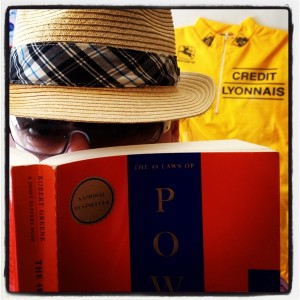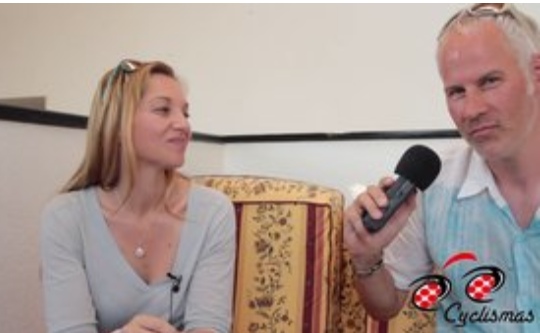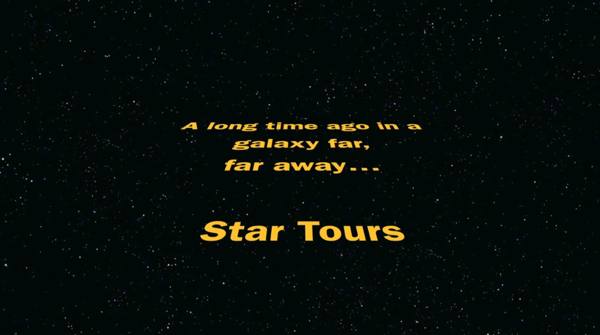This week has been an eye opener for many as sideline whispers of corruption and collusion at our favourite governing body have become shouts from centre stage. That the UCI has now injected itself forcefully into the USADA proceedings when just two months ago its public position was “we’re not involved in this, it’s a USADA investigation. They’re doing all the process in the United States. It’s nothing to do with UCI… .” Time will tell if this move was in sudden realization of damaging information that may come to light during the hearings that would expose the UCI’s dealings, or if it was a return favour to Lance Armstrong for years of loyal service.
Yours truly started a Twitter hashtag on Wednesday entitled #ResignMcQuaid, and it seems to have struck a chord with a number of disenchanted fans and others involved in the world of cycling, having generated nearly 500 tweets in less than a day. However, it was pointed out to me via DM that I am nothing but a serial pot-stirrer who cracks jokes and points out shortcomings rather than suggest solutions to implement change.
So I am rising to that challenge.
Changing the current leadership
The UCI passed a Code of Ethics in 2011, which spells out in great detail what members of the organisation, including its president and its staff, are allowed to do in the course of business. It discusses gifts, accommodations, and details of how personal interests have no bearing on the activities of those employed by the governing body or representing the governing body. Of particular interest is Article 2 of the Code of Ethics, particularly points 3, 7 and 9 of Article 2:
Point 3
nonviolence, including abstaining from any kind of pressure and harassment, whether
physical, mental, professional or sexualPoint 7
priority to the interests of sport and athletes in relation to financial interests
Point 9
political neutrality of the government body.
Simply put, based upon Pat McQuaid’s correspondence threatening action against the USADA, he is in violation of Point 3 of Article 2. This is especially true in light of WADA’s full support of USADA’s actions as expressed in David Howman’s letter to Pat McQuaid on 7 August 2012. The McQuaid letters are professional pressure to end an investigation that may cause the UCI to be looked upon unfavourably.
This isn’t the first time McQuaid has exerted professional pressure to force compliance to his way of thinking. McQuaid has issued a letter to team owners threatening to charge them for the biological passport programme if they didn’t show up to Beijing. McQuaid also sent intimidating letters to sponsors of WorldTour teams, threatening the same.
As far as Article 7 is concerned, McQuaid has continually made statements to the press that declare the revenue requirements of the UCI take precedence over sporting values. In interview after interview, statement after statement, we see that his sole driving motivation is to create a larger revenue stream. He has made comments that women’s cycling hasn’t developed enough for it to be promoted more, and instead cites men’s road cycling as the means for globalisation because it has the bigger potential for revenue stream. Isn’t this counter to the code of ethics? Isn’t sporting value more important?
Article 9, “political neutrality” can be construed in many ways, a vagary McQuaid is attempting to spin to his advantage, as can be seen in his letters to WADA and the USADA. It should mean the UCI president treats all federations and their agents equally and fairly, as outlined in the UCI Constitution and also elements of the WADA code adopted in the UCI anti-doping rules.
McQuaid’s preferential dealings with China over other federations and the promotion of their races to the WorldTour level in a completely arbitrary manner shows his lack of political neutrality. Has he created a commission for cycling growth? No, he has created a private for-profit enterprise.
Has there been a transparent process in order to determine which races become part of the WorldTour? No. In an article that appeared in Rouleur Magazine where Herbie Sykes interviewed McQuaid, he boldly told Sykes, “It is ultimately my decision.” Based upon these actions alone he should be targeted for investigation by showing partiality to a federation based upon unstated terms. Is this appropriate for a not-for-profit sport governing body?
Article 9 also comes into play in the current legal “battle” between USADA and Armstrong. McQuaid has personally sent animated letters vehemently defending his position on behalf of the UCI to both USADA and WADA, which seems to be mostly centred around acquiring the details of the case against Armstrong.
It can be construed that his staunch defence of Armstrong’s rights under the framework of the UCI is to counter a precedent set by cases against Valverde (see VeloNation’s article here) where the UCI followed the parameters of the WADA code in a situation where a rider did not receive a positive test result. WADA and USADA both expected the UCI to behave in the Armstrong case as they did with Valverde. They have not. This could indicate McQuaid and the UCI are exerting pressure politically to ensure a result favourable to those who are, in turn, putting pressure on McQuaid.
Based on the code of ethics, there are grounds for any of the federations, or USADA and WADA, to file a complaint to the ethics committee, citing these and a litany of other examples as reason to have an investigation conducted. In fact, the request of an inquiry into ethics violations from within the UCI’s framework is necessary in order to build a case for having members of the management committee removed for said violations.
WADA also has grounds to file a complaint with the IOC based upon the actions of the UCI President, whose inconsistent application of UCI anti-doping rules and WADA anti-doping rules is clearly evident in the disparity between the handling of the Armstrong case in comparison to the Valverde situation.
If formal filings were submitted by both parties, it would take simply one member of the management committee, be it Mike Plant of the USA, or Igor Makarov of Russia, or even Mike Turtur of Australia to muster the support of 1/5 of the Federations in the UCI membership to call an extraordinary Congress for a vote on the removal of president Pat McQuaid. The UCI must convene the Congress within two months of said request. An approval of the ultimate removal of the president requires a 2/3 majority vote.
Or they could simply file a motion to add the dismissal of the UCI president for cause based on the mounting evidence (which requires immediate action) at the Congress meeting at the UCI Championships, provided they have 15 of the federations supporting the inclusion of the item on the agenda. Again, the 2/3 majority vote would come into play. The question is, are current members willing to make this gesture and do the footwork, or are they also merely puppets to a corrupt agenda, similar to other sports? How many UCI presidents have ever been removed for cause? You might care to check the history books for the answer to this question.
Why should we care? There is an executive committee for a reason at the UCI. It ensures that the business of the UCI is conducted properly, impartially, and fairly. However, the president has powers to make important decisions without consulting the executive committee in emergency situations (Article 59 of the UCI Constitution). So, has McQuaid’s decision-making been on a permanent emergency basis? Can we see the record of when he has consulted with the executive committee on important decisions? Why haven’t we seen any additional comments from management committee or executive committee members in the press or otherwise?
Congratulations if this happens, as you will now have either Hee Wook Cho, Renato di Rocco, or Mr. Artur Lopes as president until the next election. By the way, they are also your executive board, which is supposed to be approving and agreeing to what McQuaid has been doing publicly. Maybe you want them removed as well. Lopes has been on the board since 2001, and apparently actively involved in anti-doping initiatives, and is from Portugal. di Rocco? He’s the Italian who just came out with some interesting comments about the GB track programme’s superiority due to more velodromes in England than Italy. What about Cho? He’s been a pedestrian to all of the challenges since 2005. The commonality of all three? They were all born in the 1940s. No joke. And no offense to them, but what is their relevance with current cycling issues?
There are mechanisms to trigger the investigation and removal of the entire management committee, or the president solely. In our current circumstances, it is imperative that this happens now from multiple sources. From inside the UCI. From the AIGCP. From WADA. From the IOC. Enough is enough.
Now what?
A framework for moving forward
The purposes of the UCI are:
Article 2
a) to direct, develop, regulate, control and discipline cycling under all forms worldwide;
b) to promote cycling in all the countries of the world and at all levels;
c) to organize, for all cycling sport disciplines, world championships of which it is the sole holder
and owner;
d) to encourage friendship between all members of the cycling world;
e) to promote sportsmanship and fair play;
f) to represent the sport of cycling and defend its interests before the International Olympic
Committee and all national and international authorities;
g) to cooperate with the International Olympic Committee, in particular as regards the participation
of cyclists in the Olympic Games.Article 3
The UCI will carry out its activities in compliance with the principles of:
a) equality between all the members and all the athletes, licence-holders and officials, without
racial, political, religious, or other discrimination;
b) non-interference in the internal affairs of affiliated federations;
c) compliance with the Olympic Charter in everything to do with the participation of cyclists in the
Olympic Games;
d) the non-profit-making purpose: the financial resources shall be used only to pursue the purposes
set forth in this Constitution. UCI members have no rights thereto.
Is there anywhere in there that says they are supposed to be the exclusive manager of professional cycling? Anywhere does it state that the UCI is a pyramid that has professional road cycling with the Tour de France at the top and everything else below, as per the current UCI president?
No.
Firstly, the UCI needs to divest itself from their direct influence in the professional road cycling realm. Like a man mesmerized by a cobra just before it strikes with a deadly blow, the UCI has become maniacally obsessed with this subset of cycling since 1992. The UCI should not be directly involved with the creation of races, nor with networking directly with corporate entities seeking to collude on the creation of races in the vein of Beijing. The UCI is meant to be a facilitator to help the grassroots growth of cycling by utilizing and leveraging national federations and for-profit private enterprise while maintaining separation from potential calls of nepotism, cronyism, and corruption.
We do need an organisation to coordinate a calendar for professional road cycling. We need an organisation to oversee the development of continental, pro-continental, and “WorldTour” levels in a coordinated fashion, in conjunction with the UCI’s oversight and the cooperation of the national federations where applicable.
Why can’t it be under the framework of the AIGCP?
The AIGCP is an organisation representing the collective interests of the team owners at the professional level that could be extended to look after the interests of the teams when it comes to negotiations with the race organisers. As president of this group, Jonathan Vaughters has already begun negotiations with RCS Sport in crafting a revenue-sharing deal for the teams and their races. Why not extend this framework to all three levels of the professional circuit?
In the same vein, why not pioneer a similar structure for women’s cycling? With a reduced focus on day-to-day operations of road cycling, the UCI could help develop a women’s circuit using a similar but separate structure unique to the nuances of this gender’s cycling development.
Both circuits should be providing a fee structure back to the UCI to assist in the enforcement of rules and overall education and administration of the sport.
A move such as this could allow the UCI to return to its neutrality. Commissaires, consultation on course routes, education of team officials, and the licensing and administration of the support overall to ensure that all cycling federations and professional organisations conduct themselves by the rulebook. It would also continue the development of gifted youth via the World Cycling Centre. It would also free up time to develop more elements of cycling, be it BMX, cyclocross, mountain biking, or track in conjunction with national federations or private for-profit enterprise. Instead of just giving lip service to the globalisation of the sport by trying to be everywhere doing everything, it could develop a network of expertise already well within its grasp to provide direction and expertise so future generations can enjoy the sport.
Within the UCI, BMX should have its own commission with a director and management committee elected by a congress of BMX national federation people. MTB the same. Road the same. These commissions’ actions should be coordinated by the existing structure of the UCI. The commissions shouldn’t be appointed by the management committee. Top-down appointees assure that nothing happens in a particular sport, and sometimes talented people are overlooked when those are in fact the ones who can bring about change and innovation.
Speaking of innovation, while on one hand I don’t see an issue with a compliance programme and the work of Julien Carron on the other, the costs charged by the UCI should be re-evaluated and lowered to allow all levels of equipment producers the ability to provide quality products to cyclists in all pursuits.
Somewhere between 1992 and today, the UCI forgot what it was created to do.
Its job was to allow various races and athletes to spread their wings farther and higher, to help spread the gospel of two wheels. It was to provide a neutral place to settle disagreements between nations and race organisers. Our FIFA. Our IAAF. Corrupt or not corrupt. Instead, we hear phrases like profit, revenue streams, forced globalisation.
The Obrees of the world should be celebrated and debate should ensue on how to include innovators such as him, or the Gary Fishers, or the Mike Sinyards, or the Stan Days, or the Tullio Campagnolos, or the Henri Desgranges, the Koechlis, or even, dare I say, the Conconis of the world. Truly, it is the unique, the different, the brilliant who push the limits of sport to take us higher, faster, and stronger.
These are just small examples of change the UCI should be embracing to further the sport. The ultimate job of the the UCI is to do its best to create an equal playing field for all divisions of the sport of cycling and equal focus from the governing body over an extended period of time. After all, why should only a few profit from the sport when all can benefit?
It is time for a change. It’s time we fix what ails the UCI.















1 Comment
If the UCI Executive Committee does not immediately and resolutely dismiss McQuaid, support WADA, and provide the USADA with all the materials it has requested in the Armstrong conspiracy case, then UCI is simply unfix-able and it will an entirely new organization will need to takes its place.”We’d welcome any investigation into the UCI. There has
never been corruption in the UCI.” Pat McQuaid, UCI President, February 2011. An investigation needs to be started immediately.USA Cycling and its president Shawn O-Farrell have put themselves in the same position as UCI. There links with Armstrong and LiveStrong need to be investigated. Armstrong’s and LiveStrong’s name and influence needs to be immediately removed for any connection whatsoever to youth in cycling or youth in sports.